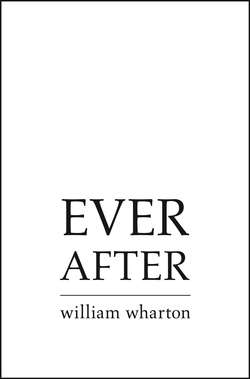Читать книгу Ever After - William Wharton, Уильям Уортон - Страница 5
Foreword
ОглавлениеAs a result of the experiences described in this work, I have come to the conclusion that everything coming through the mind of man or woman is fiction. So-called truth is a convenience and a comfort for which we all search. This search seems natural and necessary to humans.
In science, observation are established as truth by replication. A concept or observation is considered true when numerous repetitions of the same concepts, observations and conclusions have been completed and verified.
However, for a long time, scientific man was convinced the sun went around the earth. This phenomenon fulfilled all the requirements for truth in its day.
History considers an event to have been true when it has a significant volume of primary, secondary and tertiary evidence, enough to warrant a statement of validity. However, it is, in the long run, merely a consensus truth. That is, most people think it is true. And, typically, they only consider it true for a limited time.
Religion takes its truth from revelation to individual humans, sometimes called prophets: superior or alien beings with special powers, who are generally not of this world. From these revelations, various versions of dogma evolve among humans which purport to be truth. Many people live their lives by these ‘truths,’ will kill or be killed for them.
I’ve gathered as much evidence, primary, secondary and tertiary, as I could. I pray the event herein described will not be replicated. I do not expect, or ask, belief from you, the reader, in the unique revelation with which I was blessed. It is reported only as part of the total experience, the holy horror of it all.
I am writing this work of biography-autobiography-fiction, concerning the event which changed our lives, in the form of a documentary novel. In the interest of the aesthetics involved in novel-writing, I have needed to employ certain novelistic devices.
There are conversations I did not hear, for example, between my daughter and her husband, which I create. They are, however, related to the unfolding events as I know them. I tell part of this tale from the point of view of my daughter, Kate, in her voice, as teenager and adult. It was necessary to use the novelist’s techniques of personal projection to do this. I hope it does not invalidate for the reader the sequence of events I wish to tell. It is not meant to.
I am a novelist. This along with painting is my mode of communication. I hope the reader will be able to enter into the events related and the emotions experienced with at least the ‘feeling of truth’ for truth.
To protect the privacy of those concerned with this tale I have changed all names except for some first names of my immediate family. To those, I’ve given my writer’s surname.
I don’t intend that this be a book of complaints except as it is necessary to explain certain events as I experienced them. I am the first to admit that bias enters all communication, even when an effort to represent truth is being made.
William Wharton
15 April 1993, Port Marly
